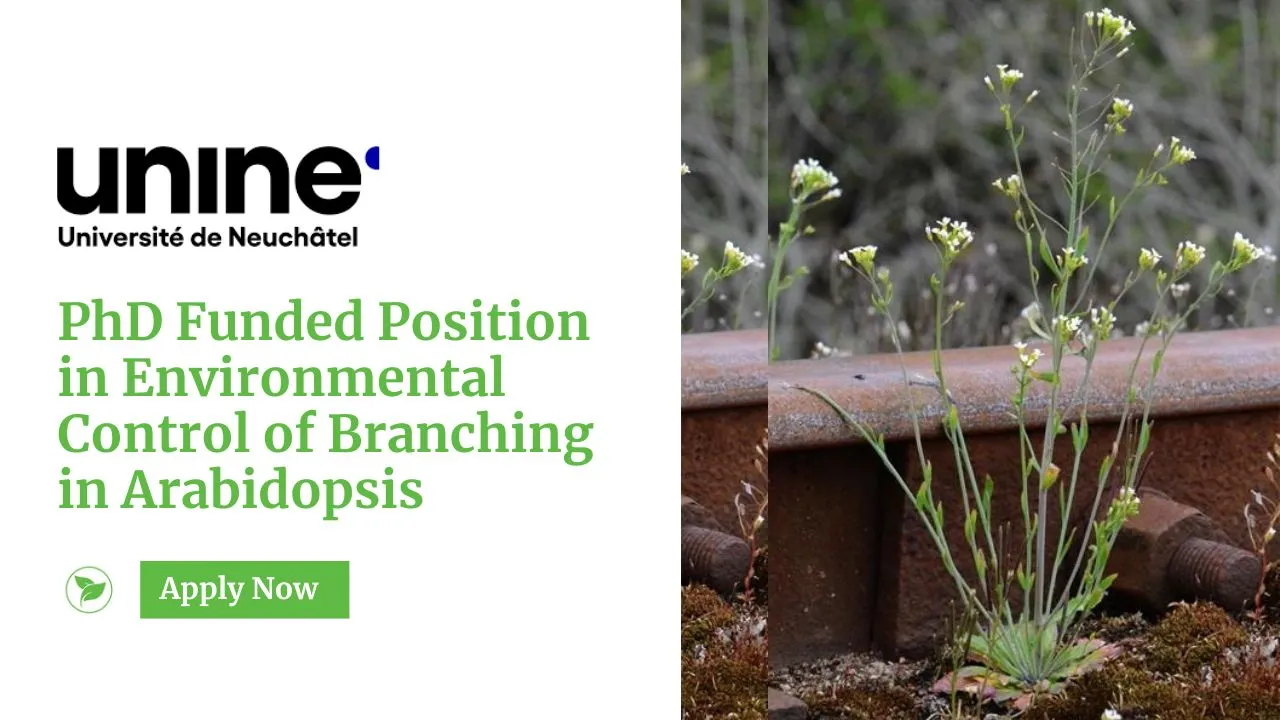PhD Funded Position in Environmental control of branching in Arabidopsis at University of Neuchâtel in Switzerland; Have you ever wondered why the same plant can look so different when standing next to a window or in the center of a dark room? How can the same species take so many different shapes? If you’re interested in finding out, then this is your opportunity!
We are interested in understanding the mechanisms underlying plant’s perception and response to light and temperature signals from the environment. In particular, this PhD project aims at understanding how plants regulate the development of branches. When plants grow in canopies, for example in a dense crop field, they perceive the presence of plants nearby and trigger the shade-avoidance responses, which include, among others, elongation of stems and petioles, a more erect position of leaves and inhibition of branching. Branches are formed by axillary meristems, structures containing undifferentiated cells that appear in the base of leaves. Light-regulation of axillary branch development involves, among others, light receptors of the phytochrome family, transcription factors of the PIF family and BRC1 and hormones such as auxin, abscisic acid, cytokinin and strigolactone.
Your job will be to study where, when and how these factors act, as well as to identify new factors involved in the regulation of branching by light signals. This will require to analyze the development of plants growing in controlled conditions, perform molecular biology techniques such as PCR, qPCR, cloning, western blot, transforming plants, histochemistry and histological cuts, microscopy and measurements of hormone levels. You will need to be creative and find efficient solutions to new problems, as well as learn to and reproduce well-established methods in the lab. You will have to communicate your findings in writing and orally.
We offer a fully funded PhD position up to 4 years, in an international, dynamic, and collaborative environment. The Plant developmental plasticity lab is led by Dr. Martina Legris, is funded by the Swiss National Science Foundation and will open in September 2024. We commit to providing an enjoyable work environment, personalized guidance during your PhD and the necessary training to develop your technical and soft skills to boost your future professional career.
Start date: Ideally September – December 2024.
Requirements: MSc in biology or equivalent.
To apply: If you are interested in the position, please send your application to Martina Legris martinalegris@gmail.com with the subject “PhD application – your name”. Please include a CV and a motivation letter stating why you want to do a PhD and any other information that you consider relevant. In addition, please fill in the following form: https://forms.gle/6ivZ1kurvnLKhxEu5 . Application deadline: 31 May 2024.
See More Ph.D Opportunities Here

